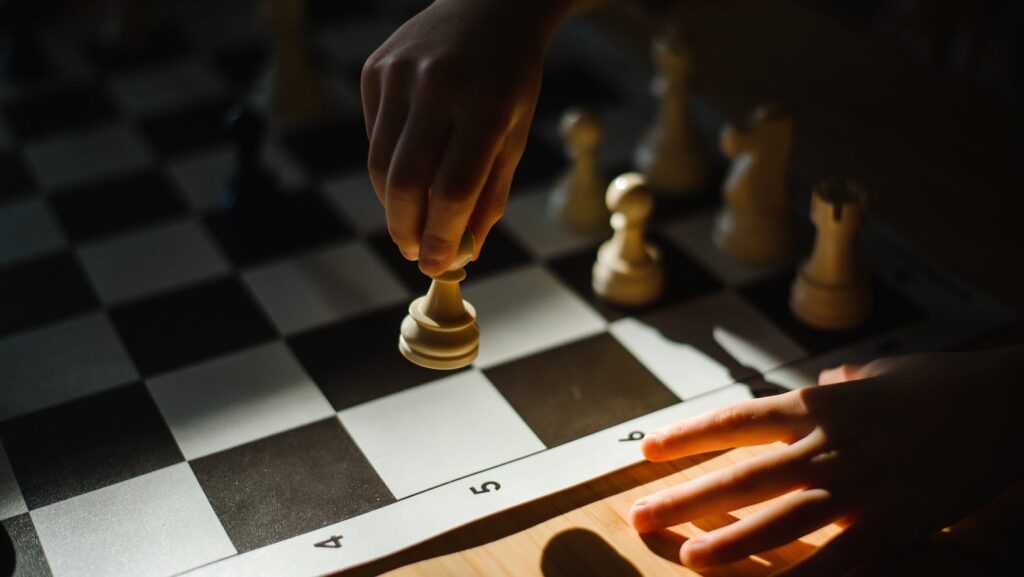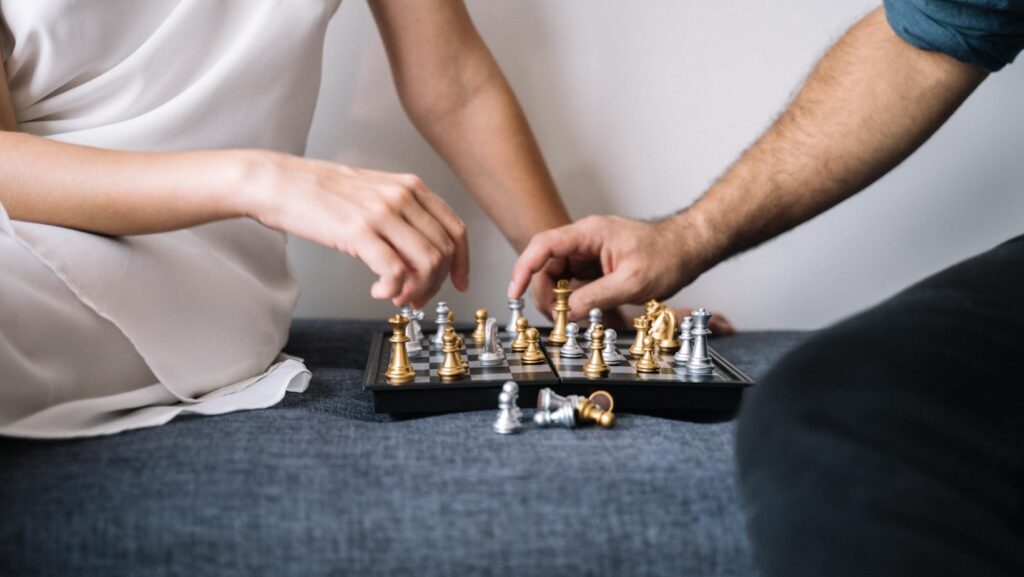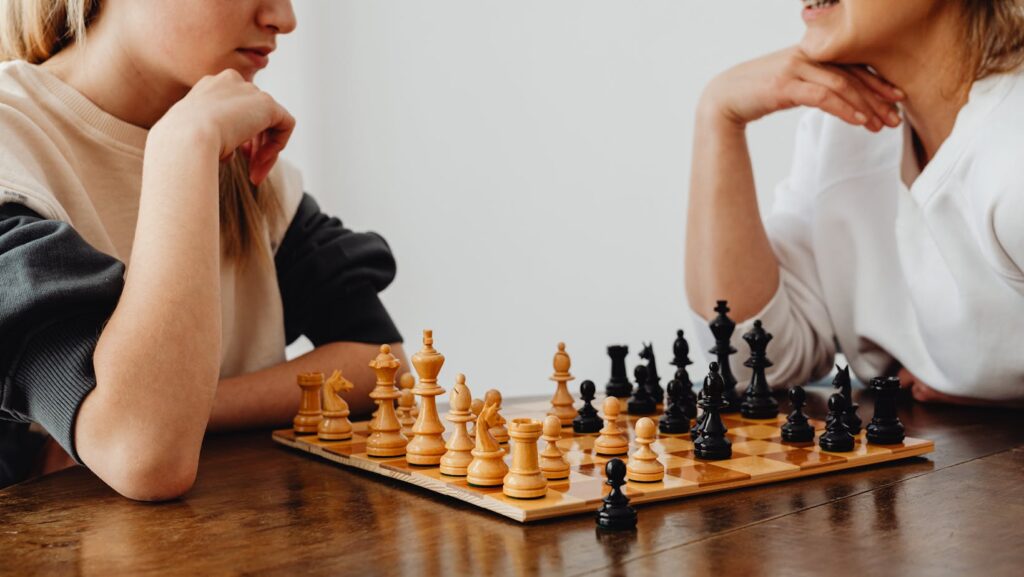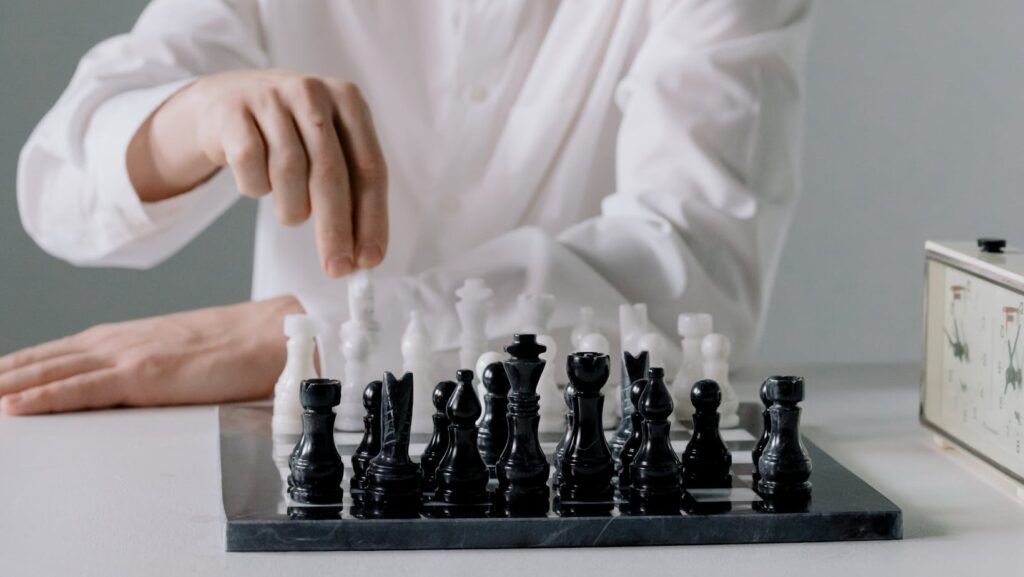When it comes to mastering the art of chess, strategic exercises are crucial. They are the secret sauce that transforms a novice into a grandmaster. This article will delve into the world of strategic chess exercises, shedding light on their importance and how they can elevate your game.
Strategic Chess Exercises

After diving into the significance of strategic chess exercises, the next focus is to provide a deeper understanding of these exercises and their vital role in mastering the game.
Chess exercises, a blend of chess techniques and planned exercises, are designed to help players improve their skills and strategies. Players, irrespective of their levels, employ these chess exercises to polish their ability to foresee and react to opponent’s moves. A key component of chess exercises includes solving chess patterns (for instance, the fork pattern, pin or skewer) and recognizing these patterns on the chessboard at the drop of a hat.
The Importance of Strategy in Chess
Strategy reigns supreme in chess. The ability to think ahead, anticipate opponent’s moves, and make the right decisions positions a player for success in the game. Chess strategy begins from the first move and pervades all phases of the game – opening, mid-game, and endgame. For instance, deciding where to position the pieces in the opening phase, or understanding when to exchange pieces in the mid-game, or figuring out the quickest path to checkmate in the endgame, all require strategic thinking.
Key Types of Chess Exercises
Tactical Puzzles

Tactical puzzles, common in chess exercises, primarily focus on enhancing a player’s ability to identify potential threats and opportunities. Their essence lies not in moving pieces aimlessly but in thinking a few moves ahead. Typically comprised of specific game scenarios, players analyze these puzzles to find the best move or sequence of moves. For instance, a puzzle might involve a series of moves ending in a checkmate.
Through these puzzles, players gain invaluable insights into fundamental tactics such as forks, skewers, pins, and discoveries. Incorporating tactical puzzles in daily chess practice sharpens problem-solving skills, cultivates quick-thinking abilities, and bolsters maneuvering prowess.
Positional Drills
Tailored towards strategic precision, positional drills are another crucial chess exercise. They’re designed to test and train a player’s ability to establish an advantageous position. Positional drills often shade into longer sequences, highlighting the importance of initial positioning in dictating the course of the game.
Concepts such as control of the center, pawn structure, piece coordination, and space management are regularly covered with these drills. For instance, a young rook might be maneuvered across the board, aiming to control open files. These drills instill critical principles in players, like the importance of structured pieces and tactical space utilization, ultimately promoting superior game planning and execution.
Benefits of Regular Chess Exercises
Improvement in Decision Making

Taking part in consistent chess exercises has its imprint on decision-making abilities conspicuously. Players, through repeated tactical puzzles and positional drills, train their mind to foresee potential moves and respective outcomes. For instance, they practice identifying threats, predicting opponent’s moves, and assessing the strategic implications of every possible move. This practice mirrors real-world decision-making, where individuals must assess a range of options and their potential outcomes.
Enhancing Visualization Skills
A recurring regimen of chess exercises also plays a crucial role in advancing visualization skills. In chess, visualizing future moves and picturizing the chessboard’s state is paramount. This visualization is fortified through repeated tactical puzzles where players have to envisage multiple moves in advance. For instance, an endgame scenario where the player must envisage a sequence of moves and predict the rival’s reactions accurately.
Elevating Your Game
Strategic chess exercises are indeed a game changer. By incorporating tactical puzzles and positional drills into regular training, players can significantly boost their problem-solving abilities. It’s not just about honing skills, but also about developing a keen eye for strategic implications. Visualization skills, often overlooked, get a major uplift, enabling players to plan ahead effectively.

